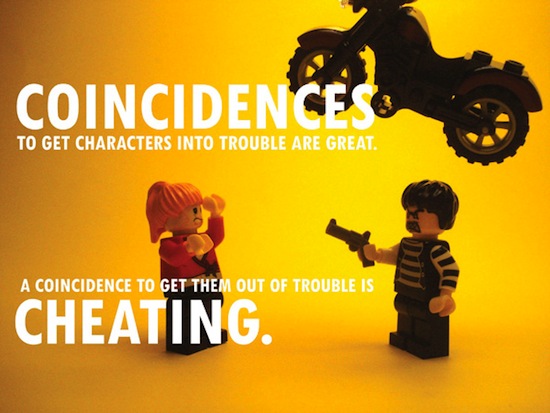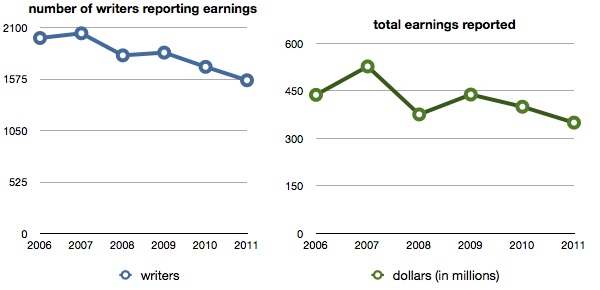Emma Coats’s list of [22 story rules](http://www.pixartouchbook.com/blog/2011/5/15/pixar-story-rules-one-version.html) moves from useful to delightful when
[illustrated with Lego](http://slacktory.com/2012/07/pixar-story-rules-illustrated-by-icanlegothat/):

(I’ve written about the [perils of coincidence](http://johnaugust.com/2007/perils-of-coincidence) as well.)
Illustration by Alex Eylar, link via [David Anaxagoras](http://davidanaxagoras.com).
